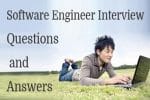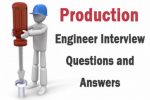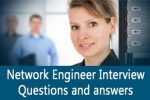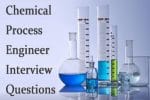Software Engineer Interview Questions and Answers
No doubt to say, a software engineer can get more job opportunities than the applicant of other fields, but still they need to be prepared themselves to crack the interview process of the recruiter. No one can be sure about which questions an interviewee is going to face an interview, but the best thing is to be ready for everything so that your answer can satisfy the recruiter. If you are a software engineer, you might face general as well as technical questions as to judge your intelligence and education. Here some questions are given along with the answer in order to take you ahead in the completion.
Q.1. What is software engineering?
A: Software engineering is the core idea on which today’s computer systems or this virtual world depends. A software engineer is always digging codes and design to discover something new that makes the task easier virtually. It is all about solving challenges with programming code that means the software is working on the various codes and an engineer’s work is to design those codes that perform different tasks. It is a passion to discover new ideas with programming language and software skills.
Q. 2. What are software programming and software engineering?
A: Programming is the basic concept of software that contains some codes in order to run a program. The software engineering is a wide concept, of course it needs the software programming, but still, there are many other issues too. A software engineer looks after the matter of assessing requirements of the user, using the algorithm and checking and testing the computer coding.
Q. 3. What is your concept about computer engineering, computer science and software engineering?
A: Though computer engineering has courses on software, but software engineering stresses widely on every aspect of software that means it is all about the coding, algorithm, process improvements and it does not include the hardware and electrical issues as that are included in computer engineering. The difference between computer science and software engineer is that the software engineering is based on the computer science, but the way of working is differ. A scientist discovers new things, whereas an engineer works to help people by designing codes, verifying and analyzing it.
Q. 4. What are the skills of software engineer?
A: Software is needed to run a computer and is required in the embedded system as well which is used in networks, consumer devices and other things, so a software engineer needs to have the high quality skills to think creatively in order to improve the present features as well as produce new software. One needs to be technically correct to understand the complexity of software architecture, quality assurance and other details.
Q.5. What is software development life cycle (SDLC)?
A: A software development life cycle (SDLC) includes stages to get the end result. One needs to follow an order to develop software that consists of stages, which are requirement gathering, system analysis, design, coding, testing, maintenance and documentation. A software engineer follows different models of SLDC that includes waterfall model, spiral model, V-model etc. Depending on the developmental process, the model is used accordingly.
Q.6. Explain the types of Architecture in software engineering.
A: Software Architecture is a fundamental structural organization that provides a predefined subsystem, including rules and guidelines for a software system. The examples of the Architectures are peer to peer architecture, blackboard architecture, client/server and others.
Q. 7. What is your concept of design pattern?
A: Design pattern are used in solving the problem in software design. In following some patterns, it is easier to reuse designs and architectures. The patterns include Creational – Concerned, Structural – Concerned and Behavioral – Characterize. The three patterns are used according to the respective purposes and with different issues.
Q.8. Explain what is Software scope?
A: Software scope defines all the activities, which are needed to develop software as well as the detail features of the software that includes its functions, the components and how the end software will work. It clearly sketches the patterns to develop software, which is an important thing for the developer.
Q. 9. What is software configuration management?
A: Software configuration management helps to configure software according to the requirements of its development. It is a process of controlling software as per its function, design and other things. It is an important process that needs to be handled with a great care while making changes in the software.
Q.10. What are the responsibilities of a software project manager?
A: A software project manager performs the management activities that include planning, monitoring the process, making a good liaison with the stakeholders and all other works that a manager is assigned to. Controlling the risks and managing resources are some important skills of a project manager. To be specific, a software project manager looks after all the project related matter and manages to execute the whole process smoothly.
Categories: Job Interview Tags: Engineer Interview, Questions, Software
Production Engineer Interview Questions and Answers
Production Engineers manage the operation of one or more manufacturing workshops in a manufacturing company. Their role is to organize, set up and optimize production, while observing specifications. Their responsibilities vary based on the size and structure of the company. They can be in charge of all the products, one line in particular, or a step in the manufacturing process. Following are some frequently asked Production Engineer interview questions and answers. Make you preparation with these questions and answers for your reference.
1 Q: Tell me about yourself.
A: This is the most asked interview question. The answer to this question tells the interviewer a lot about you and what you are all about. Answer this question briefly and confidently. Talk about your experience and achievements in short. You need not mention your personality traits here in this answer.
2 Q: What do you know about this manufacturing company?
A: Before appearing for the interview, you should do some research about the company. The more in depth detail you give, the more are your chances of being selected for the job. You can also add some new information about the company which will show that you have an interest in working in the company.
3 Q: Why do you want to work for us?
A: You need to be really specific as to why you want to work for the company. Mention your qualifications and skills which relate to the job requirement of a production engineer. You have to give a convincing answer to the interviewer. Talk in a few sentences your reason for working in the company.
4 Q: What has been your biggest accomplishment so far?
A: Talk about your career related accomplishments which are closely related to the job you are applying for. You can say about things which are appreciated by your supervisor or say about what you have contributed to your previous company as your accomplishments. Accomplishments are simply milestones and the interviewer wants to learn what you have achieved in your career.
5 Q: What is your greatest weakness?
A: Be honest about your weaknesses but also talk about what steps you have taken to improve upon those weaknesses. It is best to choose a weakness that doesn’t particularly affect the job you are doing. You need not talk much about it as you can be viewed as unsuitable for the job.
6 Q: What is your greatest strength?
A: Answer with a positive strength of yours and also give specific examples of how that strength was used in your previous jobs. Whatever you say you need to also relate to the job of production engineer. The interviewer should find your strength as beneficial for the work.
7 Q:. What is your work style?
A: Show the interviewer that you believe in bringing out a quality finished product as your priority and not the speed in which you are finishing the project. You need to show the qualities that are required for a production engineer. However, you should also mention that you have no problems meeting the production deadlines.
8 Q:. How long do you expect to work for us?
A: You need not mention the specific number of years you would be working with the company. You can give examples of your previous jobs where you have shown stability by being with them for a number of years. You can also add that as long as there is an opportunity to grow you would like to be associated with the company.
9 Q:. How do you handle failure?
A: The interviewer wants to judge the way you handle failure. As a production engineer, you may be faced with failures. You can give an example where you failed for the first time but how you handled the situation and completed the task. Try to give an impressive answer to this question.
10 Q: Do you have questions for me?
A: All interviewers generally ask this question in the end. Show your enthusiasm to work for the company. You should always be prepared with some good questions before appearing for your interviewer.
11 Q: What is the difference between manufacturing and production?
A: Production is the process of converting inputs into outputs through various operations. In production, the raw material is not procured from outside, the company owns it and after processing and make the final product. But in Manufacturing, the company procures the raw material from outside, and then makes the final product. Manufacturing is a process of converting raw material in to finished product by using various processes, machines and energy. Production is a process of converting inputs in to outputs.
12 Q: What is process planning?
A: Process planning consists of selection of means of production, establishing the efficient sequence of operation, determination of changes in form, dimension or finish of the machine tools in addition to the specification of the actions of the operator. It includes the calculation of the machining time, as well as the required skill of the operator.
13 Q: What is Production process?
A: It is the process followed in a plant for converting semi finished products or raw materials into finished products. The art of converting raw material into finished goods with application of different types of tools, equipments, machine tools, manufacturing setups and manufacturing processes is known as production.
Categories: Job Interview Tags: Engineer Interview, Interview Questions, Production
Network Engineer Interview Questions and Answers
Network engineers may work internally as part of an organization’s IT Support team or externally as part of an outsourced IT networking consultancy firm working with a number of clients. Network engineers are responsible for implementing, maintaining, and supporting, developing and designing communication networks within an organization or between organizations. The work however is influenced by the size and sector of the employing organization. Following are some frequently asked Network Engineer interview questions and answers. Make your preparation with these questions and answers before appearing for your interview.
1 Q: What is a DOMAIN? What is the difference between a domain, a workgroup and a homegroup?
A: DOMAIN is created when we install Active Directory. It is a security boundary which is used to manage computers inside the boundary. Domains, workgroups and homegroups represent different methods for organizing computers in networks. The main difference among them is how the computers and other resources on the networks are managed.
2 Q: What is the difference between standard and extended ACL?
A: Standard ACL’s are source based, whereas extended ACL’s are source and destination based. Standard ACL’s can only filter layer 3 network traffic, while extended ACL’s can be used to filter layer 3 and layer 4 as well.
3 Q:. Why do we use routing?
A: By default, a router provides inter network communication only for directly connected networks. To establish communication between indirectly connected networks, we require routing. We can use static or dynamic routing according to topology requirement.
4 Q: What is the difference between switch and hub?
A: The difference between a switch and a hub is that a switch can handle multiple communications between the computers attached to it whereas a hub handle one at a time.
5 Q: What is Remote Access Services?
A: Remote Access Services refers to any combination of hardware and software to enable the remote access to tools or information that typically reside on a network of IT devices.
6 Q: What is the difference between client mail and web mail?
A: An email client is software installed on your computer that is used to access the email server your service uses. Webmail however is a server that you log into over the internet. The email client downloads your emails onto your computer the same way you download any other file from the internet. With webmail, the emails are left on your provider’s servers and that is where they stay unless you delete them. Gmail, yahoo and hotmail are the biggest names in webmail services. Outlook, Incredimail, and thunderbird are email clients that are installed on the computer and used to access email.
7 Q:. What is the difference between firewall and antivirus software?
A: A firewall is a filtering device. This filtering can be either built in or user defined. It controls incoming traffic usually by rules created by the firewall administrative to prevent invasive probing and attacks to the servers, PCs and other devices on your local or wide area network. Antivirus software is usually a scanning software with a subscription service that provides the scanner virus definitions allowing it to search files,incoming,outgoing,and stored on hard drives and other storage devices which can be potentially hazardous to your internal network or PC.
8 Q:. What is the difference between dialup and broadband?
A: A broadband connection provides high speed internet access over a standard phone line. The advantage of a broadband connection over a standard dial up service, is that Broadband is considerably faster and is always on meaning that once you are logged on, your PC is online until the PC is turned off again. Broadband offer high speed internet access and allows telephone calls and a permanent internet connection to share a single phone line simultaneously whereas in Dialup connection either internet connection or telephone call can be made at given time.
9 Q:. What is Spam guard?
A: Spam guard helps radically reduce the amount of spam you receive in your inbox by diverting most of it to your bulk mail folder. Spam guard constantly updates itself to recognize and deflect more spam each day. When turned on, emails that are sent out in bulk are delivered to your bulk mail folder and are deleted after 30 days.
10 Q: What is NIC?
A: A network card, network adapter or NIC (network interface controller) is a piece of computer hardware designed to allow computers to communicate over a computer network. A network interface card provides the computer with a dedicated full time connection to a network. Personal computers and workstations on a local area network typically contain a network interface card specifically designed for the LAN transmission technology.
Categories: Job Interview Tags: Engineer Interview, Interview Question Answers, Networking
Chemical Process Engineer Interview Questions and Answers
Chemical process engineers also called process engineers are chemical engineers who work on the creation and manufacturing of chemicals such as pharmaceuticals. They take part in the research, development, testing and evaluation of manufacturing process. Day to day duties of chemical process engineer vary depending on the industry. Process engineers can be employed in companies of any size, as most companies must find ways to make their chemical processes more efficient , cost effective, and compliant with environmental and safety regulations. Read below some frequently asked Chemical Process Engineer interview questions and answers.
1 Q: What are the important activities of a chemical engineer?
A: Some of the important activities of a chemical engineer are to perform intimately with process chemist as well as management engineers to make sure that the production unit is ready to produce maximum output with effective operation, to ensure all possible safety issues concerning the process operator and environment, to engage in upgrading and troubleshooting activities etc. You should read the job description before appearing for the interview. It will help you in answering this question very well.
2 Q: What is a chemical reactor?
A: A chemical reactor is a device which is used to contain controlled chemical reactions. Reactions take place inside the reactor, in conditions which can be monitored and controlled for safety and efficiency. These types of reactors are used in the production of chemicals such as components of pharmaceutical compounds, and they can operate in several different ways.
3 Q: What are the factors that come under operation cost?
A: The operating cost comprises many factors including energy input, raw material cost, energy removal, labor etc.
4 Q: What is electro catalyst?
A: An electro catalyst is a catalyst that participates in electrochemical reactions. Catalyst materials modify and increase the rate of chemical reactions without being consumed in the process. Electro catalysts are a specific form of catalysts that function at electrode surfaces or may be the electrode surface itself. The electro catalyst assists in transferring electrons between the electrode and reactants and facilitates an intermediate chemical transformation described by an overall half reaction.
5 Q: What is Deacon reaction?
A: The deacon process is a process used during the manufacture of alkalis by the Leblanc process. Hydrogen chloride gas was converted to chlorine gas, which was then used to manufacture a commercially valuable bleaching powder, and at the same time the emission of waste hydrochloric acid was curtailed. The reaction takes place at about 400 to 450 degree Celsius in the presence of a variety of catalysts including copper chloride.
6 Q: Define entropy.
A: Entropy, a measure of the disorder in a system containing energy or information. The less ordered a system is, the greater is its entropy. In thermodynamics, entropy is given in terms of the heat transferred to or from a substance at a given temperature.
7 Q: Explain the third law of thermodynamics
A: The third law of thermodynamics is essentially a statement about the ability to create an absolute temperature scale, for which absolute zero is the point at which the internal energy of a solid is precisely 0. Three potential formulations of the third law of thermodynamics are
- it is impossible to reduce any system to absolute zero in a finite series of operations.
- The entropy of a perfect crystal of an element in its most stable form tends to zero as the temperature approaches absolute zero.
- As temperature approaches absolute zero, the entropy of a system approaches a constant.
8 Q: What is the difference between horizontal and vertical heat exchanger?
A: The main difference between horizontal and vertical heat exchanger is residence time fluid which flow in horizontal heat exchanger gets more residence time as compared to vertical heat exchanger.
9 Q: What is the difference between unit operation and unit process?
A: A pure unit operation involves only a physical change examples drying, size reduction, distillation, filtration etc. where as in general unit operation involves physical and chemical change. And a unit process is a number of unit operations grouped together in a manufacturing system.
10 Q: Why should we hire you?
A: It is time to prove yourself as a suitable fit for the organization. Describe about your knowledge, skills and experience in order to stand apart from other candidates. However, you should remember, not to repeat what you have already said. Say in a positive and confident tone so as to impress the interviewer.
Categories: Job Interview Tags: Chemical Process, Engineer Interview, Interview Question Answers




